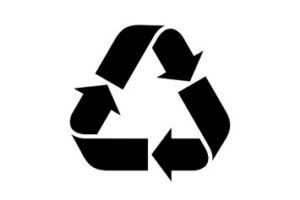The Florida House and Senate unanimously approved a bill that would exempt processing of certain recovered materials from solid waste regulations. The fate of the bill is now in the hands of Republican Governor Rick Scott. The American Chemistry Council’s (ACC) Plastics Division said it welcomed this “first-of-its-kind” legislation, which “will make Florida a welcoming environment for innovative businesses that convert post-use non-recycled plastics into fuels, chemicals and chemical intermediates.”

Products Must Be Sold or Used in 1 Year
House Bill (HB) 335 adds post-use polymers and pyrolysis facilities to those materials and facilities that are exempt from solid waste regulations. (Pyrolysis is process through which post-use polymers are heated in the absence of oxygen until melted and thermally decomposed, and then cooled, condensed, and converted to a variety of products, including gasoline, oil, and various chemicals.)
Under the bill, to ensure that the processed materials are managed as a valuable commodity and not speculatively accumulated to avoid regulation, a majority of the post-use polymers at a facility must be sold, used, or reused within 1 year. The post-use polymers and the pyrolysis facility must meet other existing statutory criteria applicable to recovered materials and recovered-materials processing facilities.
The bill also clarifies that the Florida Department of Environmental Protection and local governments must regulate post-use polymers and pyrolysis facilities according to the same provisions that govern recovered materials and recovered-materials processing facilities.
If approved by the governor, the bill would take effect July 1, 2017.
State Has 75 Percent Recycling Goal
“We’re thrilled to see legislation that attracts new innovative businesses and supports the creation of new jobs by treating post-use plastics as the energy-rich resources they are by classifying them as equivalent to ‘recovered materials’ and not as ‘waste,’” said Craig Cookson, ACC’s senior director of recycling and energy recovery. “In addition, HB 335 ensures manufacturing facilities that convert these post-use plastics into liquid fuels, chemicals, waxes, and lubricants are not wrongly classified as solid waste management facilities. It also facilitates recognition that the conversion of post-use plastics into these valuable products will count as ‘recycling’ and contribute to meeting Florida’s 75 percent recycling goal.”
Traditional recycling of plastics continues to increase in Florida and around the nation, added Cookson. “However, there are economic barriers to recycling 100 percent of any material,” he said. “New technologies, such as pyrolysis and gasification, are enabling manufacturers to recover more of the energy embodied in plastics. Florida recycles nearly 7.4 million tons of municipal solid waste annually. Converting Florida’s non-recycled plastics into energy could provide enough fuel to power more than 500,000 cars every year.”
HB 335 is here.
